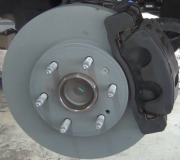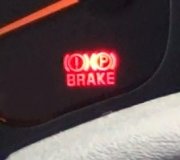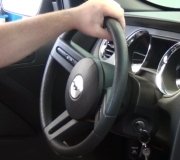When you release the brake pedal, there is a tab on the arm that pushes on the brake light switch to turn it off, similar to how closing a door turns off the dome light. Brake light switches usually have a means of adjusting them so they turn on and off at the right time. If that switch is adjusted too close to the firewall, it will hold the brake pedal down, just as if you were driving with your foot on the brake pedal.
Under normal operation, when you push the brake pedal, the piston in the master cylinder moves forward, and the first thing that happens is the rubber lip seal on it passes the fluid port going to the reservoir. At that point the brake fluid is trapped by that seal, then it has no choice but to be pushed down to the wheels as you push the pedal further. (That seal is leaking when you have "internal leakage". That results in the brake pedal slowly sinking to the floor, and you are not losing brake fluid).
When you release the brake pedal, the piston in the master cylinder comes back far enough to expose the port to the reservoir. That lets all the pressurized brake fluid return from the brakes, so the brakes release. If you instead continue to hold the brake pedal down as little as half an inch, that port remains blocked, the brake fluid remains trapped and under some pressure, and the brakes do not fully release. Instead of your foot causing that, the brake light switch can do it too. Once you continue driving with the brakes stuck partially-applied, the front disc brake pads become hot from the constant friction. That heat migrates through the caliper and into the brake fluid. That heat makes the brake fluid expand, and since it is trapped and unable to flow back into the reservoir, it builds even more pressure in the system. That higher pressure applies the brakes even harder, then they get even hotter. It's a vicious circle until the car won't even move or the brakes are smoking. This also often causes a thumping feeling in the steering wheel and / or the seat of the car. It feels like there's big blob of tar stuck to a tire.
To be fair, the brake light switch adjustment is not a likely cause of this because you weren't working in that area, so nothing related to it should have changed, but we don't want to overlook the possibility something happened to it. You may be able to identify this by stopping on a slight incline, shifting to neutral, then pulling the brake pedal up with your foot. If the brakes release, it is because the force you're putting on the brake pedal is bending the mounting bracket for the brake light switch. That proves the switch is holding the pedal down too far.
The other possibility is the power booster's push rod I mentioned, but those usually aren't adjustable on Chrysler products. That means they can't be misadjusted.
There are other places where brake fluid can become trapped under pressure, but we're beyond that by your observing the brakes release when you loosen the lines at the master cylinder. That proves for certain that is where the fluid is being trapped.
I mentioned brake fluid contaminated with a petroleum product too. The rubber parts including the lip seals are not compatible with petroleum products. It causes the rubber to swell and become soft and mushy. When they swell up, they grow past the fluid return port to the reservoir, so the brake fluid remains trapped in exactly the same way as holding your foot on the brake pedal does. That type of damage takes about a week to show up once the contamination hits the rubber seals.
I'm not sure what you meant in your last reply, but I have an idea of what might have happened. Explain that a little differently or with more detail.
Tuesday, January 7th, 2020 AT 11:52 AM



